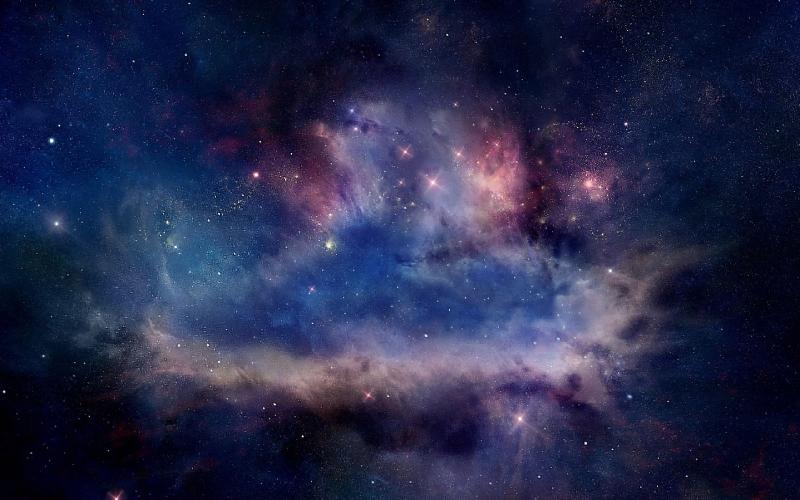Why wouldn't a true nothing consist of no laws of physics and no possibility of anything popping into existence?

I think this article excerpt makes a very perceptive point. In a true "nothing" there would be no laws of physics to allow an explanation for the universe coming from nothing.
I will note that the source of this seed is a religious "conspiracy" site that sometimes contains absurd articles and arguments. I don't think this excerpt is in that category though.
================================
"According to Stephen Hawking, "Because there is a law such as gravity, the universe can and will create itself from nothing. Spontaneous creation is the reason there is something rather than nothing, why the universe exists, why we exist." However, neither gravity nor any other law of physics provides a mechanism by which universe can be spontaneously created. The question Hawking never answered was why those laws of physics exist? Although it is possible for things such as particles to pop into existence from "nothing," it has never been shown that non-quantum-sized objects can perform such feats. Even if it were possible, why would it be expected that such laws of physics would exist that universes to be created from nothing? Why wouldn't a true nothing consist of no laws of physics and no possibility of anything popping into existence?
So, Stephen Hawking wants us to believe that a nebulous set of theories, which cannot be confirmed through observational data, absolutely establishes that an infinite number of diverse universes exist, having been created from laws of physics that just happen to allow this. John Horgan, a fellow atheist, says that the popularity of M-theory is the result of "stubborn refusal of enthusiasts to abandon their faith." 3 Is it not more likely that a super-intelligent, powerful Being invented the laws of physics that produced the universe? Skeptics always ask, "Who created God?" Maybe they already have the answer to that question—Nothing! After all, they seem to think that nothing is a powerful force for creating things!"
http://www.godandscience.org/apologetics/hawking_no_gods_necessary.html
Tags
Who is online
55 visitors

I'm afraid that "nothing" is far too difficult a subject for my little brain. I mean that quite literally.
There would always have been "energy" in some form. In what form we'll probably never know. At some point (Big Bang) this energy discovered it could transform into mass, composed of several types of particles....what we call matter. From there to us took a very long time. From micro-organisms to us (stromatolites) took quite a shorter time, but still very lengthy.
https://en.wikipedia.org/wiki/Virtual_particle
The Big Bang was the explosion of a singularity having all the mass/energy of the universe.
What was there, the instant before? How long did "before" go on? What was there, elsewhere?
Are these questions nonsense?
To be fair, believers agree with Hawkings. They just phrase it differently.
Reality is, that which is, is infinite and always has been. Only man insists that there be a beginning or an end to cycles. In nature, it is a perpetual motion of that which is forward moving at all times. I don't see the point of making it complicated by laws or physics that demand an either/or of nothingness to rationalize its existence.
What but a supernatural power could sustain eternity?
This is technically false. All cycles end at some point. Even stars die. Things stagnate, corrode, break apart, dissipate.......new cycles are formed sometimes, sometimes they aren't.
I really hate the way some physicists toss the word 'nothing' around in their quotes. Lawrence Krauss does this a lot too.
They are not talking about 'nothing' as in total non-existence. They are using 'nothing' loosely. Note the quote. If gravity exists then obviously we do not have 'nothing'. Gravity is something. So the quote makes no sense if 'nothing' is taken literally.
One should consider 'nothing' (typically) to mean a zero-energy state - a condition in which the net energy is 0 but there still is a substance of existence that can spontaneous produce particles and anti-particles and cause a chain reaction. Another usage is 'uncaused' or 'spontaneous reaction'.
If we cannot break free of causal thinking then we have a real problem because no matter where we turn we face the semantically impossible notion of something emerging from nothing. That is the epitome of ridiculous.
Logically there has always been something. We do not know what the something is, but since we know that nothing would still be nothing it is clear that something has always been. So let's just say that existence itself has always been. There is a substance of existence (by definition). We do not know what this substance is, but everything that exists is a form of the substance (ultimately).
So how could our known universe emerge spontaneously? Just consider the known universe to be a form (albeit very complex) of the quintessential substance of existence. Something sparked the original chain reaction (unknown) but science can explain in great detail how the primordial universe evolved into what we observe today.